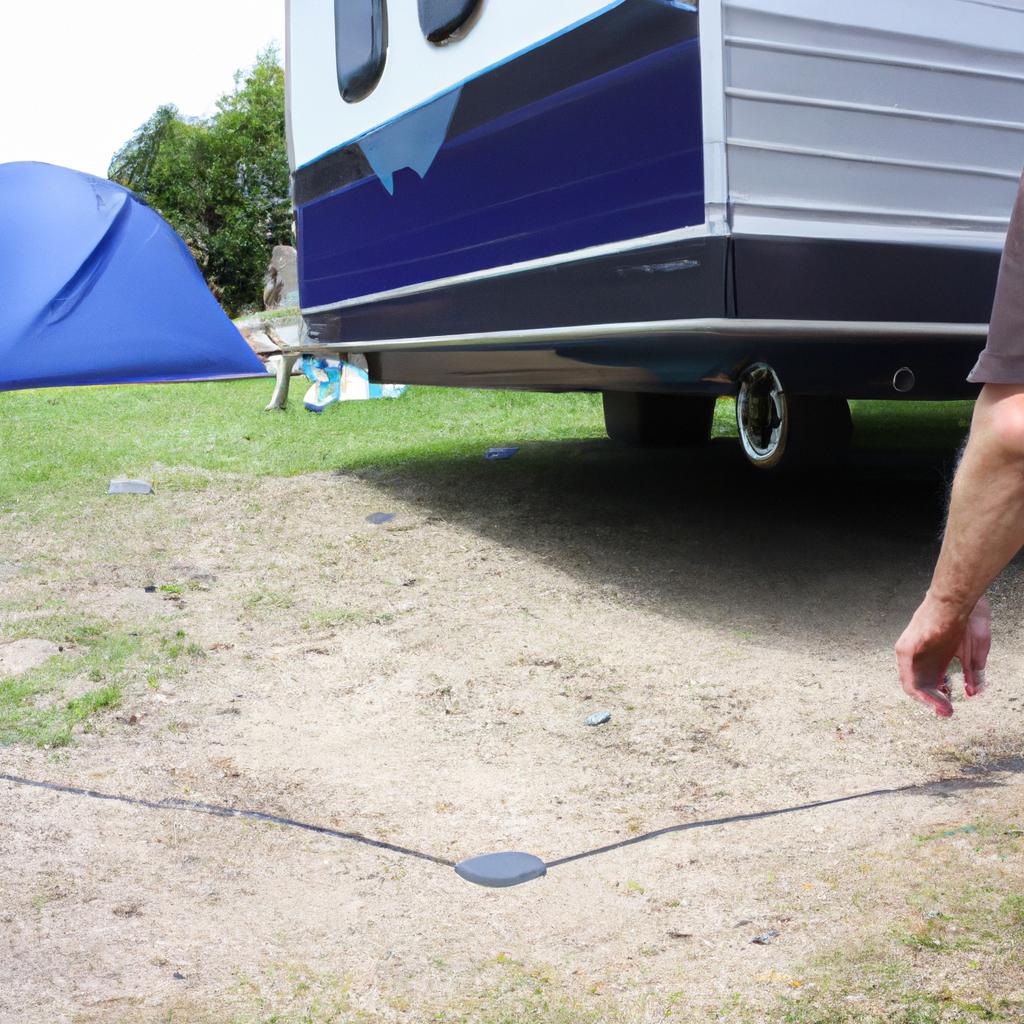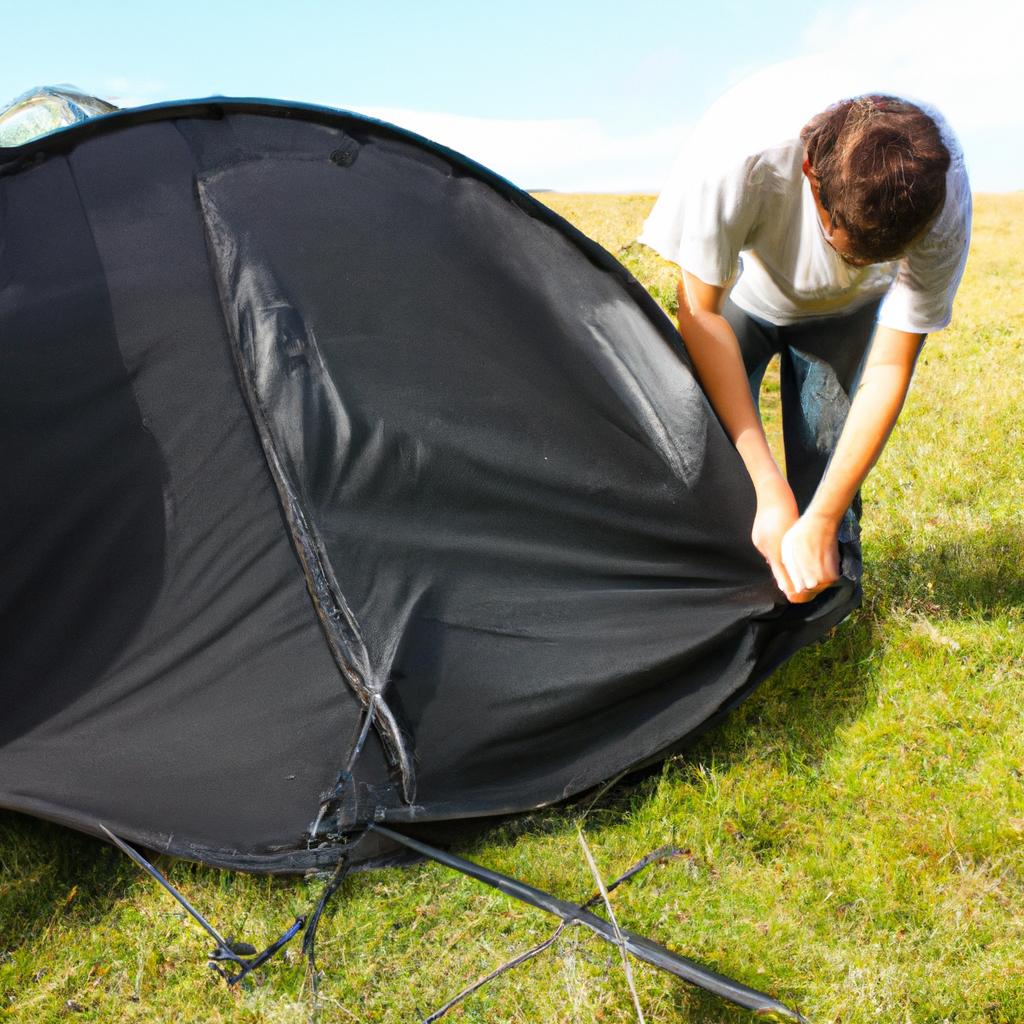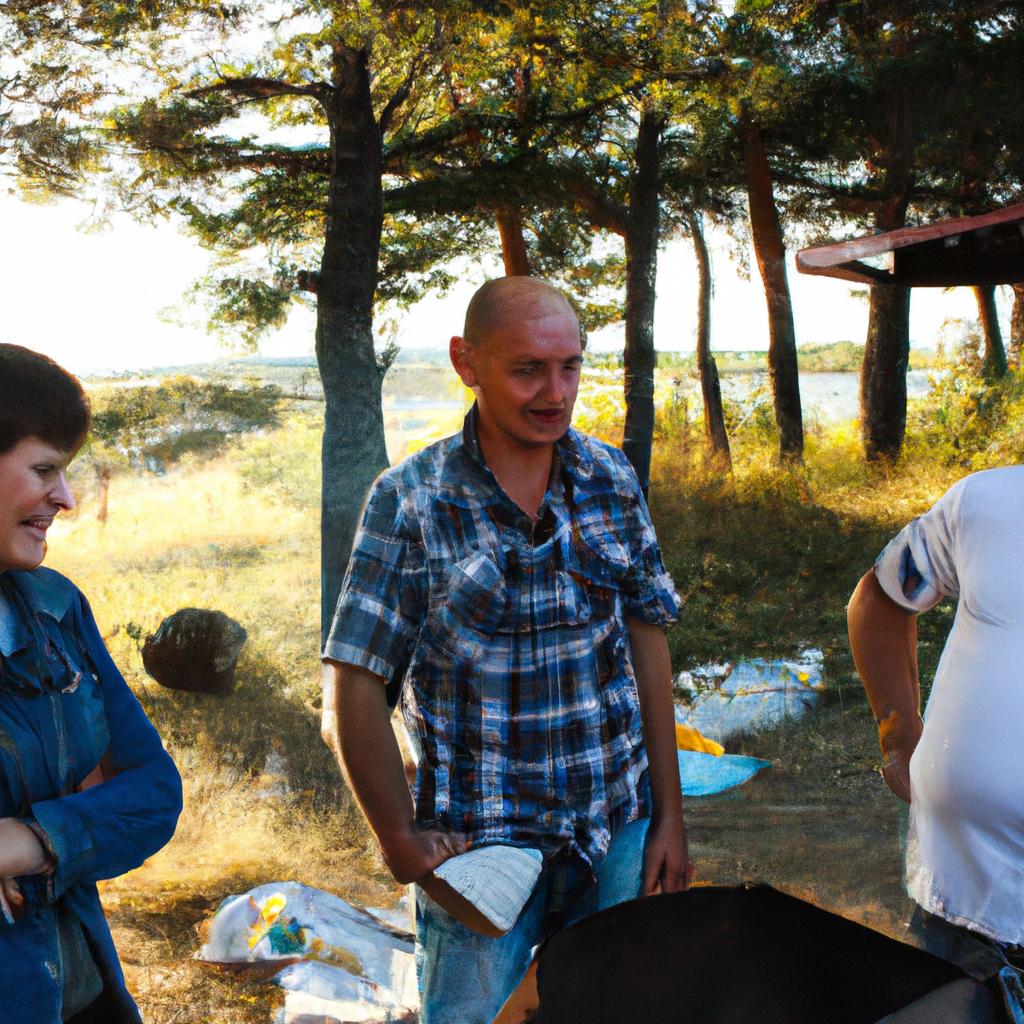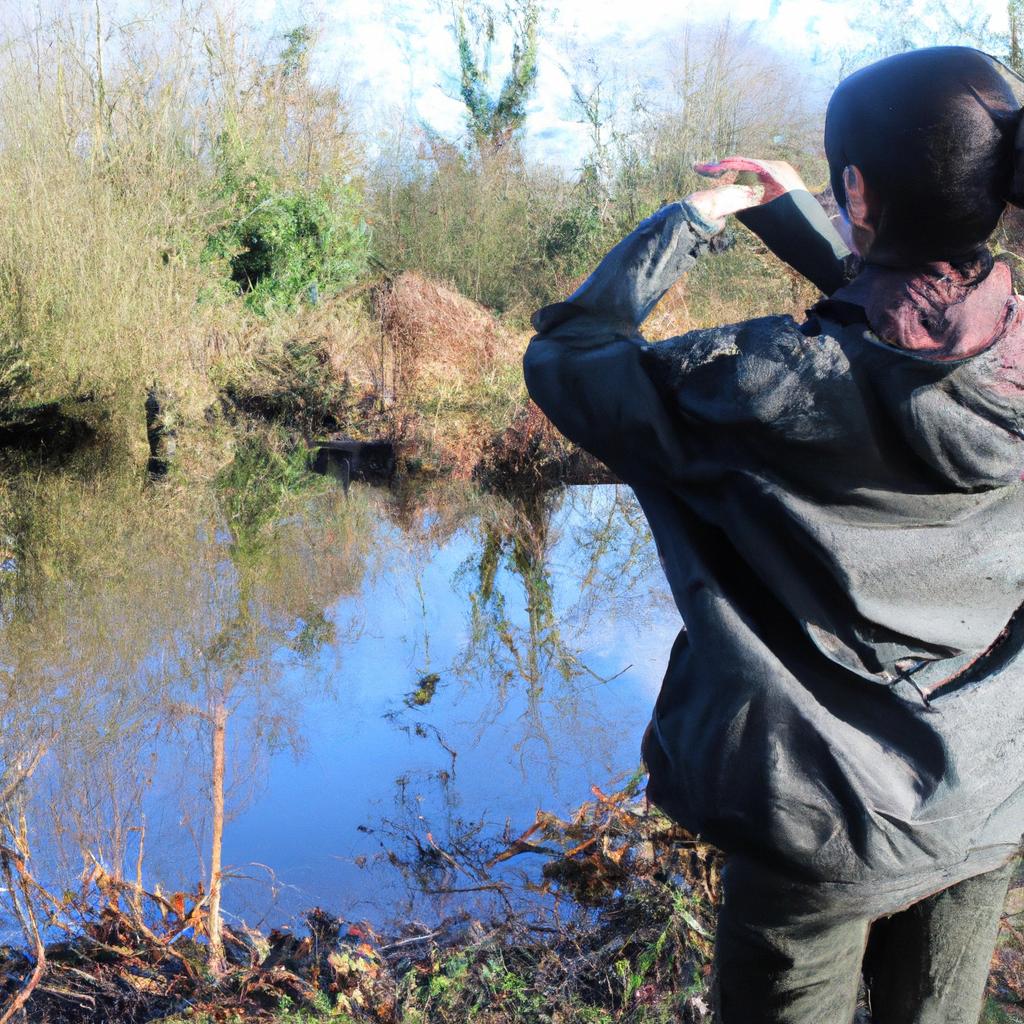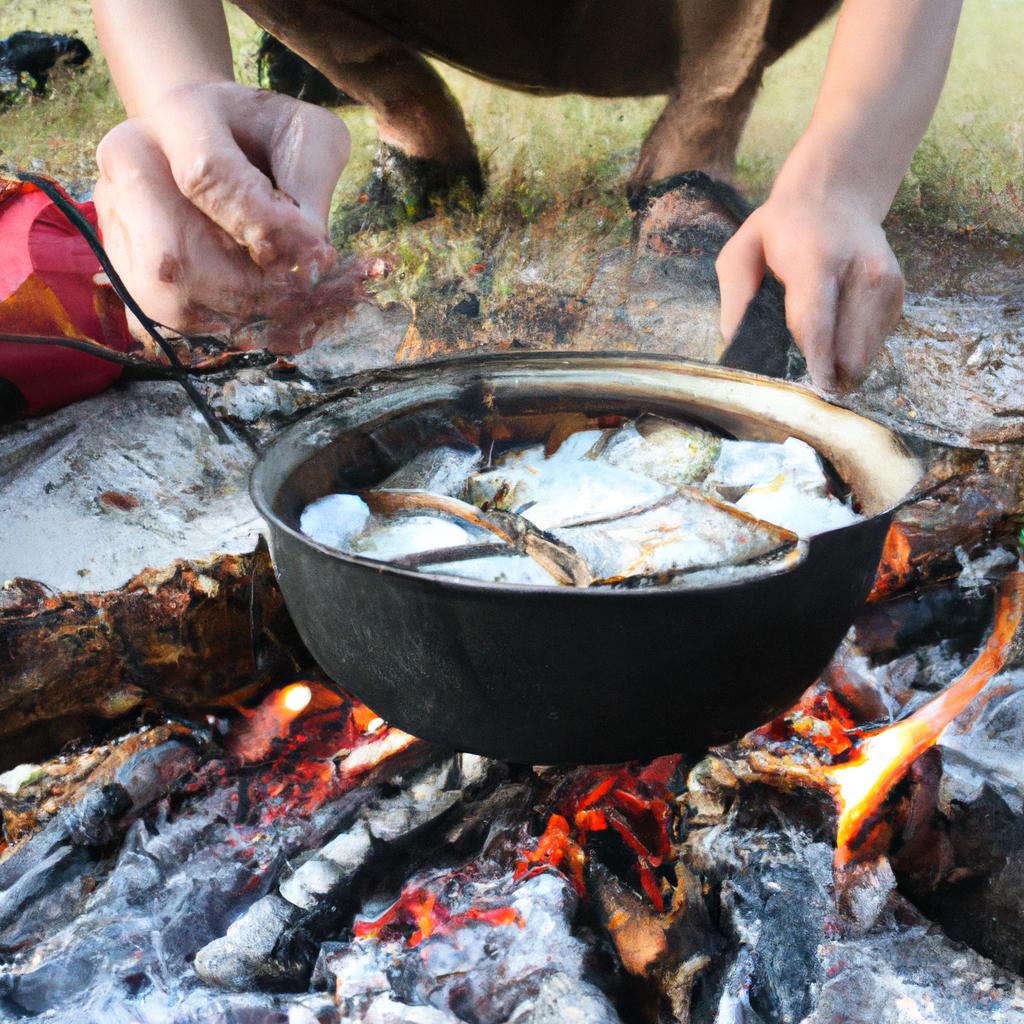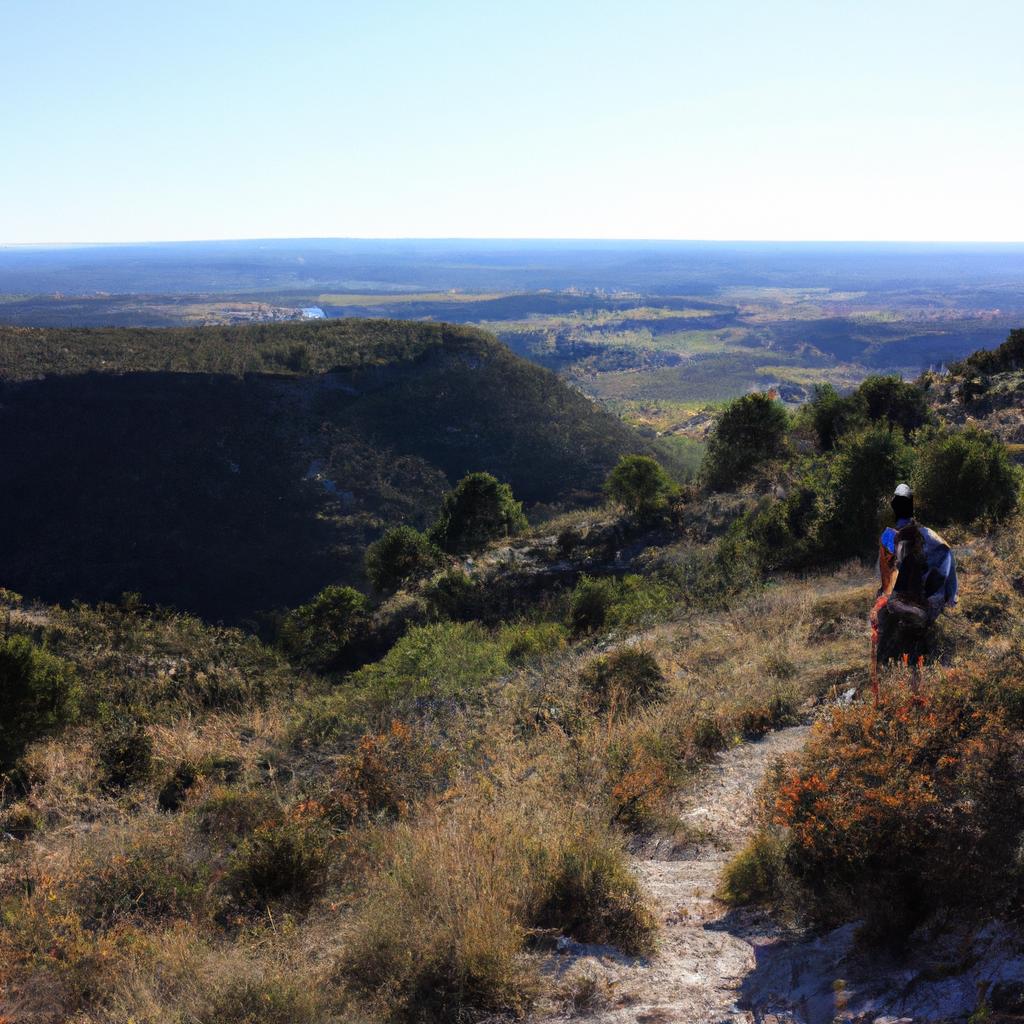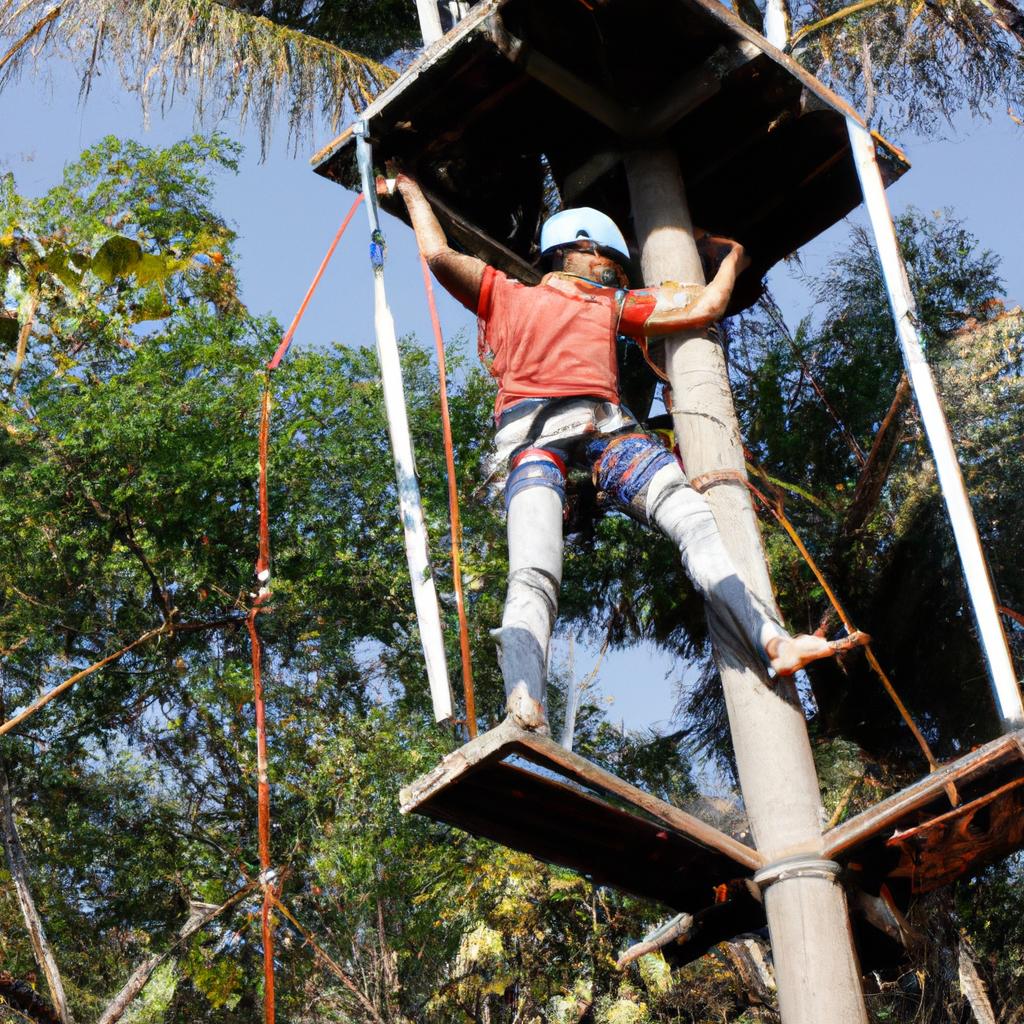Recreational Vehicle (RV) camping has become an increasingly popular choice for travelers seeking a unique and immersive outdoor experience. With the freedom to explore diverse landscapes and the convenience of having all necessities within reach, RV camping offers a remarkable way to connect with nature while enjoying the comforts of home. For instance, imagine embarking on a cross-country journey in an RV, traversing through breathtaking national parks, stopping at picturesque campgrounds along the way, and waking up to stunning sunrises every morning. This comprehensive guide aims to provide recreation travelers with essential information and practical tips for successful RV camping experiences in campgrounds.
In this article, we will delve into various aspects of RV camping that are crucial for both novice and experienced adventurers alike. From choosing the right type of RV that suits individual preferences and needs to understanding campground amenities and regulations, this guide will serve as a valuable resource for those looking to embark on their next recreational travel adventure. Moreover, it will cover important considerations such as planning routes, packing essentials, setting up camp efficiently, and maximizing enjoyment during the trip. By equipping readers with knowledge about safety measures, environmental consciousness practices, and effective communication strategies with campground staff or fellow campers, this guide aims to ensure smooth-sailing journeys throughout their RV camping experiences.
One of the first aspects to consider when planning an RV camping trip is choosing the right type of RV. There are various options available, ranging from motorhomes to travel trailers and fifth wheels. Deciding on the size, features, and amenities that best suit your needs will ensure a comfortable and enjoyable journey. Additionally, it’s important to familiarize yourself with the maintenance requirements and driving considerations specific to your chosen RV.
Once you have selected your RV, researching and selecting suitable campgrounds becomes crucial. Factors such as location, available amenities (such as water and electrical hookups), campground regulations, and reservation policies should be taken into account. Many campgrounds offer online booking systems, which can simplify the reservation process.
Planning your route is another important step in ensuring a successful RV camping trip. Consider factors such as distance traveled each day, road conditions, fuel stations along the way, and any specific attractions or landmarks you would like to visit. Mapping out your route in advance will help optimize your time on the road while allowing for flexibility if unexpected detours or changes arise.
When packing for an RV camping trip, it’s essential to bring all necessary essentials while being mindful of space constraints. Items such as bedding, kitchen supplies, toiletries, outdoor equipment (chairs, grill), and clothing appropriate for various weather conditions should be included. Creating a checklist beforehand can help ensure nothing important is left behind.
Setting up camp efficiently upon arrival at a campground is key to enjoying your experience fully. Familiarize yourself with your RV’s leveling system (if equipped) to ensure stability during the stay. Additionally, connecting water and electricity hookups properly will provide necessary comfort throughout your time at the campground. Following campground rules regarding noise levels, waste disposal, and pet regulations will help maintain a harmonious environment for all campers.
To maximize enjoyment during an RV camping trip, take advantage of activities offered within or near the campground. Many campgrounds have hiking trails, fishing spots, swimming areas, and organized events that provide opportunities for outdoor recreation and socializing. Engaging with fellow campers can lead to valuable connections and shared experiences.
Lastly, it’s crucial to prioritize safety during your RV camping trip. Familiarize yourself with emergency procedures and have necessary safety equipment on board, such as fire extinguishers and first aid kits. Practice responsible fire management when using campfires or grills, ensuring they are fully extinguished before leaving the area. Respecting wildlife and following Leave No Trace principles will help preserve natural environments for future generations.
In conclusion, RV camping offers a unique way to connect with nature while enjoying the comforts of home. By considering factors such as choosing the right RV, selecting suitable campgrounds, planning routes, packing efficiently, setting up camp properly, maximizing enjoyment through activities and socializing, prioritizing safety measures, practicing environmental consciousness, and maintaining effective communication with campground staff or fellow campers – adventurers can ensure smooth-sailing journeys throughout their RV camping experiences. So gear up and get ready for an unforgettable adventure in the great outdoors!
Choosing the Right RV for Your Camping Trip
Imagine embarking on a thrilling camping adventure, exploring nature’s wonders while enjoying the comforts of home. However, to make this dream come true, it is crucial to choose the right recreational vehicle (RV) that suits your needs and preferences. One such example is Mr. and Mrs. Johnson, who desired a family-friendly experience during their cross-country journey. By carefully considering various factors, they were able to select an ideal RV that provided comfort, convenience, and safety throughout their trip.
To ensure a successful camping trip, several key considerations should be taken into account when choosing an RV:
- Size: The size of the RV plays a significant role in determining its maneuverability and parking options at campgrounds. A larger unit may offer more space but could limit access to certain areas or require advanced driving skills.
- Layout: The interior layout determines how well the living spaces are organized within the limited confines of an RV. It is essential to assess whether the arrangement accommodates your sleeping arrangements, seating needs, and storage requirements.
- Amenities: Consider what amenities are necessary for your camping style. Some RVs provide fully equipped kitchens with modern appliances, spacious bathrooms with showers, comfortable sleeping quarters, and entertainment systems.
- Budget: Establishing a realistic budget will help narrow down the choices available to you based on affordability and long-term financial commitments.
| Size | Layout | Amenities | |
|---|---|---|---|
| Pros | Allows for more spacious living area | Optimizes use of limited space | Offers modern conveniences |
| Cons | Difficulties in maneuvering | Limited flexibility in rearrangement | Higher price tag |
By thoughtfully evaluating these factors through personal research or seeking expert advice from dealerships or online resources specializing in RVs, individuals can make informed decisions that align with their camping goals. Understanding the importance of choosing the right RV sets a strong foundation for an enjoyable and stress-free experience.
Transitioning to the subsequent section about “Essential Supplies and Equipment for RV Camping,” it is time to delve into the practical items necessary to enhance your camping trip, ensuring you have everything you need for a comfortable and memorable adventure.
Essential Supplies and Equipment for RV Camping
Imagine you are embarking on a memorable RV camping trip to a picturesque campground nestled in the heart of nature. Before hitting the road, it’s crucial to ensure that you have all the essential supplies and equipment to make your adventure comfortable and enjoyable.
To illustrate this point, let’s consider an example of a family planning their first RV camping experience. They eagerly pack their vehicle with necessary items but forget some key essentials, leading to inconveniences during their trip. By being well-prepared and considering the following checklist, they could have avoided these challenges:
- Basic Necessities: Pack ample amounts of food, water, toiletries, and clothing to last throughout your journey.
- Safety Gear: Include fire extinguishers, smoke detectors, flashlights with extra batteries, and a basic first aid kit for any unforeseen emergencies.
- Cooking Essentials: Don’t forget cooking utensils such as pots, pans, cutting boards, knives, and portable grills or stoves.
- Outdoor Recreation Items: Remember to bring outdoor recreational gear like folding chairs, tables for picnics or barbecues, bicycles for exploring nearby trails or campsites.
Creating a comprehensive checklist can significantly enhance your overall camping experience by ensuring you don’t overlook important items. Consider the emotional impact of having everything you need at hand while immersing yourself in nature’s beauty. A well-equipped campsite provides peace of mind and allows you to fully immerse yourself in your surroundings.
As you meticulously gather all the necessary supplies for your upcoming adventure in your trusty RV, remember that preparation is key. In our next section about “Finding the Perfect Campsite for Your RV,” we will explore how choosing the right location contributes to creating unforgettable memories on your camping expedition. So let’s move forward towards finding that ideal spot where serenity meets stunning landscapes.
Finding the Perfect Campsite for Your RV
Having discussed the essential supplies and equipment needed for a successful RV camping trip, it is now crucial to consider finding the perfect campsite that meets your specific needs. Let’s explore some factors to take into account when choosing an ideal location.
Introduction example:
Imagine you are planning a family road trip across the country in your trusty recreational vehicle. As you embark on this adventure, searching for an appropriate campground becomes paramount. Consider Lisa and John, avid travelers who prefer scenic campsites with ample outdoor activities. Their search leads them to Yosemite National Park, where they find breathtaking views of waterfalls, hiking trails through lush forests, and opportunities for wildlife spotting.
Factors to consider when selecting a campsite:
- Location:
- Proximity to attractions or natural landmarks.
- Accessibility to nearby facilities like restrooms, showers, and laundry services.
- Availability of amenities such as playgrounds, swimming pools, or picnic areas.
- Site Features:
- Size of the site suitable for your RV length and slide-outs.
- Level ground for easy parking and stability.
- Shade from trees or adequate sun exposure based on personal preference.
- Privacy and Noise Levels:
- Distance between neighboring sites providing privacy.
- Noise restrictions enforced within the campground to ensure tranquility.
- Environmental noise levels like traffic or construction nearby.
- Safety Measures:
- Well-maintained roads within the campground ensuring smooth navigation.
- Adequate lighting during nighttime hours enhancing security.
- Presence of fire pits or designated areas for safe cooking experiences.
Consider these emotions while selecting a campsite that aligns with your preferences:
- Serenity amidst nature’s beauty
- Excitement for outdoor adventures
- Peace of mind and relaxation
- Quality time with loved ones
Emotional Table:
| Emotions | Campsite Features |
|---|---|
| Serenity | Breathtaking views, privacy |
| Excitement | Outdoor activities, nearby attractions |
| Peace of Mind | Safety measures, well-maintained roads |
| Quality Time | Amenities, spacious campsites |
By carefully considering these factors and emotions when selecting a campsite for your RV adventure, you can ensure an enjoyable and memorable experience. However, it is equally important to prioritize safety during your trip. Let’s now delve into some essential RV safety tips that will help make your journey secure and worry-free.
RV Safety Tips for a Secure and Enjoyable Trip
Building on the importance of finding the perfect campsite, it is crucial to prioritize safety during your RV camping adventure. By following some key safety tips, you can ensure a secure and enjoyable trip. For instance, consider the case of John and Sarah, experienced RV travelers who embarked on a journey without taking adequate safety measures. Their negligence led to several mishaps that could have been avoided with proper preparation.
Firstly, proper maintenance of your RV plays a vital role in ensuring safety on the road. Conduct regular inspections before each trip to identify any mechanical issues or wear and tear. This includes checking tire pressure, brakes, lights, and other essential components. By adhering to manufacturer guidelines and addressing potential problems promptly, you minimize the risk of breakdowns or accidents.
Secondly, familiarize yourself with emergency procedures specific to RV travel. Know how to handle common situations such as tire blowouts or engine overheating. Additionally, carry necessary tools like spare tires and fire extinguishers onboard at all times. Being prepared for emergencies not only enhances your safety but also provides peace of mind throughout your journey.
Lastly, practice responsible behavior while exploring nature’s beauty in campgrounds. Respect wildlife by keeping a safe distance and properly disposing of trash to avoid attracting animals. Adhere to campground rules regarding open fires and alcohol consumption. By being mindful of others’ experiences and preserving the environment around you, you contribute to an overall positive atmosphere during your stay.
To evoke an emotional response:
- Stay vigilant: Be aware of your surroundings at all times.
- Protect what matters most: Safeguard not just yourself but also fellow travelers.
- Create lasting memories: Ensure every moment spent in your RV is joyful and worry-free.
- Cherish tranquility: Foster an environment where everyone can relax amidst nature’s serenity.
| Safety Tip | Importance | Benefit |
|---|---|---|
| Regular maintenance | Ensures proper functioning | Prevents breakdowns and accidents |
| Emergency procedures | Enables quick response | Minimizes the impact of unexpected situations |
| Responsible behavior | Enhances overall experience | Fosters a positive atmosphere in campgrounds |
As you prioritize safety for your RV camping adventure, it is equally important to plan ahead for cooking and meal preparation. By considering various factors such as equipment, storage, and dietary needs, you can ensure delightful meals throughout your journey.
Cooking and Meal Planning for RV Camping
Transitioning from the previous section on RV safety, let’s now delve into an essential aspect of RV camping: cooking and meal planning. Imagine this scenario: you’ve spent a long day exploring nature trails or engaging in outdoor activities, and now it’s time to satisfy your hunger with a delicious meal prepared right in your RV. Having a well-planned approach to cooking and meals can add convenience, variety, and enjoyment to your camping experience.
To start off, consider the following example: Mary and John are avid campers who enjoy preparing their own meals while on the road. They plan ahead by making a list of ingredients they’ll need for each dish, taking into account any dietary restrictions or preferences they have. This not only helps them stay organized but also ensures that they have all the necessary supplies before embarking on their trip.
When it comes to cooking in an RV, here are some useful tips:
- Meal Planning: Plan your meals in advance to ensure you have all the needed ingredients and avoid last-minute stress.
- Storage Solutions: Utilize storage containers and organizers to keep your pantry items secure during travel.
- Cooking Appliances: Invest in compact yet versatile appliances like electric grills or portable stoves that offer flexibility when preparing different types of dishes.
- Campfire Cooking: Embrace traditional methods such as cooking over a campfire for a rustic culinary experience.
- Savor diverse flavors: Discover new recipes and experiment with fresh local produce found near campgrounds.
- Create memories around food: Share stories, laughter, and bonding moments while enjoying home-cooked meals together.
- Enjoy outdoor dining: Relish the pleasure of eating amidst stunning natural surroundings without compromising comfort.
- Nourish mind and body: Prepare nutritious meals tailored to meet individual dietary needs for optimal health during your travels.
Furthermore, we can provide an emotional connection through a table showcasing the benefits of meal planning and cooking in an RV:
| Benefits | Emotions Evoked |
|---|---|
| Convenience | Ease, simplicity |
| Cost savings | Financial security |
| Dietary preferences | Personal satisfaction |
| Culinary exploration | Excitement, discovery |
In conclusion, by incorporating efficient meal planning techniques and embracing various cooking methods, you can enhance your overall RV camping experience. Now let’s transition into the subsequent section about “Fun Activities and Entertainment for RV Campers,” where we will explore ways to make the most of your leisure time on the road.
Fun Activities and Entertainment for RV Campers
Section H2: Fun Activities and Entertainment for RV Campers
As recreational travelers continue to enjoy their time in campgrounds, it is essential to explore various activities and entertainment options that can enhance their overall camping experience. From outdoor adventures to social gatherings, there are numerous opportunities available for RV campers to make lasting memories. Let’s delve into some of the exciting ways you can engage with your surroundings while enjoying your stay.
Engaging in Outdoor Pursuits
One example of an engaging outdoor activity suitable for RV campers is hiking. Imagine setting out on a picturesque trail surrounded by towering trees and breathtaking views. Whether you prefer gentle nature walks or more challenging treks, exploring the great outdoors offers a sense of adventure and allows you to connect with nature on a deeper level. Alongside hiking, other popular pursuits include fishing at nearby lakes or rivers, birdwatching, or simply stargazing under clear night skies.
- Experience the thrill of kayaking along tranquil waterways.
- Unwind with yoga sessions amidst scenic landscapes.
- Engage in friendly competitions through organized campground games.
- Immerse yourself in photography excursions capturing stunning natural beauty.
Table: Popular Activities for RV Campers
| Activity | Description | Benefits |
|---|---|---|
| Kayaking | Navigate serene waters and admire surrounding | Provides relaxation and strengthens physical fitness |
| scenery | ||
| Yoga Sessions | Practice mindfulness amid beautiful landscapes | Enhances mental well-being, improves flexibility and balance |
| Campground Games | Participate in fun-filled activities like | Fosters camaraderie among fellow campers |
| horseshoes or cornhole | ||
| Photography | Capture captivating images of natural wonders | Allows artistic expression and preserves memories |
| Excursions |
Engaging in Social Gatherings
In addition to outdoor pursuits, RV camping provides ample opportunities for socializing with fellow campers. Many campgrounds organize events such as potluck dinners or community barbecues where individuals can come together and share their favorite recipes and stories. These gatherings foster a sense of community and offer the chance to forge new friendships with like-minded travelers.
Exploring Local Attractions
While it is essential to enjoy activities within the campground, venturing out to explore local attractions can further enrich your RV camping experience. You might visit nearby national parks, historical sites, or cultural landmarks, immersing yourself in the rich tapestry of the region’s heritage. Engaging with local communities by visiting farmers’ markets or attending festivals also allows you to connect with the area on a deeper level.
By actively participating in outdoor adventures, engaging in social gatherings, and exploring local attractions during your RV camping journey, you will create cherished memories that last a lifetime. The diverse range of activities available ensures there is something for everyone to enjoy throughout the duration of their stay. Embrace these opportunities to make the most of your recreational travels amidst nature’s beauty

